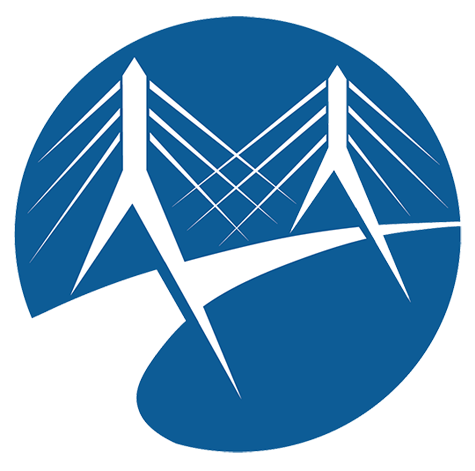
News
A Passion for Social Innovation
A Chat with Tammy Freeman
by Niall White
I had the opportunity to visit with Tammy Freeman, the latest in our ongoing “SME Interviews” for MITRE’s Bridging Innovation. We talked about Social Innovation, sustainable tourism, graduate school, and of course, Bridging Innovation. Tammy is creative, courageous, and very friendly. I hope you enjoy the read!!
Q: Let’s start at the beginning, a very good place to start…(I couldn’t resist). What was “life before MITRE?”
A: I’m a native New Yorker, growing up in Queens. From there, I went to Penn State. Imagine a city girl going to the middle of Pennsylvania. Beautiful countryside, but is that a cow? It was quite an adjustment coming from NYC to a college town like State College. I studied economics and international business, then ended up in Virginia working for Booz Allen Hamilton as my first job out of college. I’ve been in the consulting space ever since.
Q: What drew you to MITRE?
A: Doing good. Working in the public interest. I didn’t want to only work towards the bottom line or work just to get work. I wanted to solve problems that make a difference in the lives of people. If I’m working on something I’m passionate about, I get into a stride. I have to tell myself to go to sleep! We spend a good chunk of our lives doing work. I want to make sure I’m doing something meaningful.
Q: How do you feel you’ve grown at MITRE?
A: I’ve been at MITRE for nearly 7 years. I always feel like I’ve been here longer, as I’ve grown so much. When I joined the company, my core capability was business process engineering and lean six sigma. Since then, this has grown to include business innovation, design thinking, lean startup, and more. This last year at MITRE, I’ve begun working in the social innovation space, though I was already doing this outside of MITRE. In 2016, using MITRE’s civic time and personal time, I supported a sustainable tourism company in Brazil and in 2018 I supported a youth accelerator in Nairobi, Kenya. This was my introduction to the social impact and innovation space, setting me on a different path. “I love this”, I thought. These two experiences seeded an avalanche of opportunity to do some interesting work globally. As I said earlier, I want to do meaningful work, and there is nothing more meaningful than working with people doing things for positive, sustainable change.
Q: In addition to being a Business Innovation Analyst, what are your roles at MITRE?
A: I’m the Lead for the Social Innovation focus area within MITRE’s Social Justice Platform. This work is about how we can co-create better equitable outcomes with those who have been historically marginalized and underrepresented. Social innovation requires us to examine and disrupt the underlying systems that create and sustain the problems we see. It is about fundamentally rethinking how things are done and opening up possibilities to create interventions and solutions that work. Social innovation is about structural, relational, and transformational change. Our focus area gathered together capabilities such as equity-driven design thinking, participatory design, community-based research, futures thinking, and emergent strategy. As the platform evolves, the focus area is shifting toward equitable design and research to support MITRE’s work. I’m part of an outstanding team – a truly collaborative effort.
Q: Where did Bridging Innovation come into the story?
A: A key enabler for this is MITRE’s Bridging Innovation program. When we stood up the Social Justice Platform, we didn’t have any focus areas looking specifically at the wealth gap or economic justice. With my undergraduate degree in economics, and being a social entrepreneur myself, I’d have felt remiss if didn’t look into this further. I thought, “how might we bridge the wealth gap and what MITRE resources can we contribute into the ecosystem already working towards similar goals?” So, in partnership with Bridging Innovation, we took a hands-on approach to support “new majority founders” – a term coined by 1863 Ventures that I like to use. We are exploring various ways we can add value to the innovation ecosystems by lowering barriers to entry for working with the federal government, such as sharing needs, funding opportunities, and entry points while mentoring on regulations, standards, acquisition processes, and technical capabilities. This is what Bridging is all about.
Q: Could you describe some of the experiences you’ve had with Bridging Innovation?
A: We put together a startup showcase a couple of months ago. We brought 5 different New Majority Founders from 3 different accelerators and incubators –1863 Ventures, Envision, and others. The founders pitched their solutions to MITRE staff to find applications for our government sponsors. This was just one example of how we are immersed in spaces where solutions are coming from entrepreneurs, New Majority startups and founders. One of these startups received a contract with MITRE!
Q: What other thoughts do you have for someone reading this?
A: There can be a culture at MITRE where we feel expected to know everything all the time. It’s ok to say, “I’m not sure. I’m still learning. I don’t know everything”. The work of social justice requires us to constantly self-reflect on how we show up in the world, our privilege, our biases, and how what we do impacts others. One of the capability areas in the platform is futures thinking. We have to understand that achieving equity is very much a futures thinking activity we are fundamentally looking to create a society that we’ve never seen before. An overlooked critical part of this is language, how we characterize people, the terms and words we use which often carry connotations that perpetuate stereotypes and ideas about people that are counterproductive. Sometimes, I struggle with finding the right words/terms that speak to the future that we are attempting to create. I’m learning to use asset-based language versus deficit-based language. When it comes to those we call minorities and certain communities, the descriptors we use can be really negative. The impact of using negative, deficit-based language promotes a narrative that denies some people agency and feeds the mental models that are the base of the very inequities we want to end. Language is at the base of transformative change that I mentioned, which is a critical component of social innovation and systems change. So, we can’t always blame ourselves for not having the right words, but the impetus is on us to use language that speaks to the future we want to create. This is a journey, and doing this work means we won’t always know everything, and we won’t always have the answers – and that is okay. We need to consistently show up and take action, as someone willing to be part of this process of creating an equitable society.
© 2021 The MITRE Corporation. All rights reserved. Approved for Public Release; Distribution Unlimited.
Case Number 20-02581-31
Click here for a link to this article.
